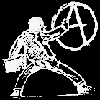|
|||||||||||||
Anarcho-Syndicalism versus Vol. 2: On Organizing the
Post #01
Interesting debate, just one note:
The conception of the early Soviet Union as socially illiberal is off-the-mark. With the Soviets playing a major part in centralist decision-making, abortion and homosexuality were legalised and divorce laws were liberalised. It was only after Stalin attacked the democratic power of the Soviets and the left opposition that these social reforms were turned back. It's important to keep the "democratic" bit in democratic centralism, and this is where Luxemburg's criticisms were on target. The masses should lead the party; the party should not lead the masses. An example of this is having a central committee that can only make recommendations and is recallable. Therefore branches, or Soviets, make the decisions.
Post #02
Greetings, Ian Anderson,
Some of your time tables appear to be off. The fight against the Soviets, which were workers' councils, was led specifically by Lenin [*1] -- at this point in history, 1917, Stalin was an almost unnoticeable figure in the Bolshevik Party. The term Soviet has been misused throughout history, according to its original intent, like the swastika. Going back to the original use of Soviet, I'd consider identical, or very close, to the concept of a Syndicate. The liberalization of Russian institutions, no doubt, was the work of these Soviets. Furthermore, Soviets had virtually no participation in the centralist decision making before Lenin's coup. It was more like two separate, independent movements -- first, Kerensky's liberal-socialist government, which consolidated and organized the front against the Germans. And second, the massive network of worker councils and unionized industries, or theoretical Soviets. [*2] They basically operated on their own, organizing their own affairs to however they liked, and while they respected each other, they didn't quite collaborate. With Lenin's coup, the Soviet's power was reduced to absolute zero, and all political decision-making was left with the Politburo — roughly, the Marxist equivalent of the British House of Lords. There have been many books written on the whole Bolshevik coup, but I'm taking most of my notes from the Wikipedia article on it, from the book "Stalin: Breaker of Nations" by Robert Conquest, and the book "The Russian Revolution" by Alan Moorehead. Rosa Luxembourg is where things get interesting, though. She called herself, from beginning to end, a Leninist and a Marxist, but her revolution had virtually none of the characteristics of any other Leninist Revolution. The Spartacist Uprising, which she had even opposed at first, was a genuinely worker-led movement. [*3] She didn't support parliamentary action, which was the cornerstone of Lenin's philosophy, and yet her policy was essentially Leninist? [*4] It's her right, of course, but for all theoretical purposes, her program of revolution resembled the Anarcho-Syndicalist methodology: organize the workers for direct, industrial action, against the Capitalist class, and this will be the tool to bring down the ruling state. [*5] Either way, it seems irrational to use a political party to achieve non-political objectives. Andy Carloff, Resource *1. "The Kronstadt Rebellion," by Alexander Berkman; "Syndicalists in the Russian Revolution," by G.P. Maximoff.
|





